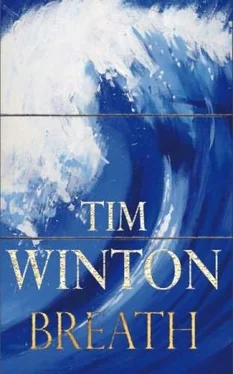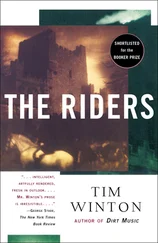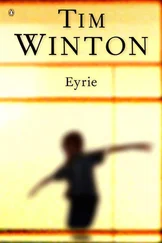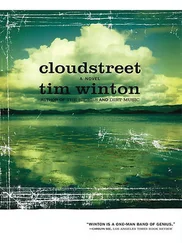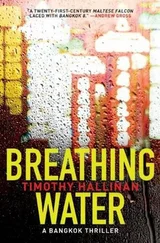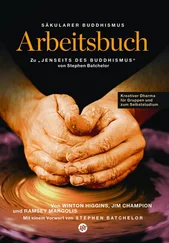So I wake with a grunt on the sofa in the empty flat where afternoon sun pours through the sliding door. Still in uniform. The place smells of sweat and butter chicken. I get up, crack the door and smell the briny southerly. I take a piss, put the kettle on and snatch the didj up off the seagrass matting of the floor. Out on the balcony my herbs are green and upright. I tamp down the beeswax around the pipe mouth and clear my throat. Then I blow until it burns. I blow at the brutalist condos that stand between me and the beach. I blow at the gulls eating pizza down in the carpark and the wind goes through me in cycles, hot and droning and defiant. Hot at the pale sky. Hot at the flat, bright world outside.
I GREW UP IN a weatherboard house in a mill town and like everyone else there I learnt to swim in the river. The sea was miles away but during big autumn swells a salty vapour drifted up the valley at the height of the treetops, and at night I lay awake as distant waves pummelled the shore. The earth beneath us seemed to hum. I used to get out of bed and lie on the karri floorboards and feel the rumble in my skull. There was a soothing monotony in the sound. It sang in every joist of the house, in my very bones, and during winter storms it began to sound more like artillery than mere water. I thought of the Blitz and my mother's stories of all-night bombing raids, how she came up out of the ground with her parents to find entire streets gone. Some winter mornings I turned on the radio at breakfast half expecting to hear the news that whole slabs of the district had been lost to the sea — fences, roads, forest and pasture — all chewed off like so much cake.
My father was afraid of the sea and my mother seemed indifferent to it and in this they were typical of the place. It was the way most locals were when I was a boy, and they were equally anxious or ambivalent about the forest around us. In Sawyer you kept to the mill, the town, the river. On Sundays blokes from the sawmill liked to row all the way down to the broad shallows of the inlet to fish for whiting and flathead and my father went with them. I can't even remember who owned those long, heavy dories moored to stakes near the riverbank — they always seemed rather municipal — and whoever climbed in first became oarsman and skipper. The trip downstream could take an hour or more, especially if you stopped at snags and sloughs to try for bream. On rare mornings when the bar was open and the sea flat, a few boats ventured out to catch snapper, but the old boy would never leave the shelter of the estiAry and no one, man or boy, could shame him into going further.
He began to take me along when I was seven. I liked the creak of the oars in their rowlocks, the disembodied shadows of pelicans rushing over the mottled flats. The big wooden dories held three or four men each, and it was quiet out there with them on the water. The other men were always tired and hungover, but my old man was just naturally subdued. When any of them spoke up they had the barking tone of the industrial deaf. They had fags-and-sawdust coughs, those men. Their jungle hats stank of prawns and fishblood. They were bachelors and returned soldiers and bank-beaten farmers who seemed oddly solicitous of my father even if they did mock him for his teetotal ways. He was a greengrocer's boy from a village in Kent who never told me stories about his old life. But he was no mystery to his workmates. He was, simply put, a steady hand and as far as I could see this was all they required of him.
We fished with handlines and sinkers moulded from lead roof-flashing, and while we filled hessian sacks and wiped slime and scales offon the scarred wooden thwarts, the surf bumped the high, white levee of the bar. Manes of spray hung above the rivermouth and flagged back in the breeze. When the bite was slow and I grew bored and restless, the old man consented to row me across to where I could get out and climb up onto the sandy wall and watch the great seas roll in.
I was a lone child and solitary by nature. Somewhere along the way I became aware that my parents were old people with codgers' interests. They pottered about with their vegetables and poultry. They smoked their own fish and mended and embroidered. Of an evening they listened to the radio, or the wireless, as they called it. Although they weren't quite grandparent age, they were definitely of a different order to the parents of other kids, and I felt that their singularity marked me out somehow. I felt protective of them, even if I was, in truth, a little embarrassed. Like them I didn't care much for football or cricket. I avoided teams of any kind and the prospect of organized sport was a misery. I did like to hike and climb but it was only in swimming that I really excelled and this must have been quite a surprise to my emigrant parents, neither of whom could swim to save themselves.
At the first signs of spring giving way to summer townie kids gathered after school near the bridge at the riverbank to dive off the crude springboard. The river was brown with tannin and cold as hell but it was very slow-flowing and safe to swim in. It was there that Loonie and I became friends.
Ivan Loon was twelve and a whole year older than me. He was the publican's son and although we'd been at school together half our lives we never had the remotest thing in common. That is, before we realized that we'd each independently perfected the art of causing riverside panic.
One November afternoon I coasted down to the river on my bike to have a jump off the plank but when I got there four girls and somebody's mother were slithering up and down the bank, yanking at their own ears and screaming that there was a boy in the water, that he was drowning right beneath them. Naturally they didn't know which boy because they were from out of town, but they knew he was a boy for he'd been there a minute ago and simply hadn't come up from a dive and were there sharks and couldn't I for God's sake stop asking questions and just get on with doing something.
Sun blazed down in rods through the big old gums. There were dragonflies in the air above us. I saw a towel near the diving plank and beside it a grubby pair of thongs, so I had no reason to doubt there was a crisis. Only the sluggish water seemed harmless and these females, who were making a frightful noise, looked so strangely out of place. I should have twigged. But I went into action on their behalf. As I bolted out to the sagging end of the springboard the wood was hot and familiar underfoot. I looked down at the wind-ruffled surface of the river and tried to think. I decided that it would be best to wade in from the bank, to work my way out by feel, and just keep diving and groping in the hope of touching something human. There wasn't time to go looking for help. I was it. I felt myself rise to the moment — put-upon but taller all of a sudden — and before I could embark upon my mission, or even pull my shirt off, Ivan Loon burst from the water. He came up so
close to shore with such a feral shriek the woman fell back on the mud as if shot.
I stood bouncing on the plank while she lay in the muck. Then she reared up on her elbows. Loonie started to laugh, which didn't really help her mood. I had never in my life seen a woman so angry. She charged into the water, lunging and swiping to no avail, while Loonie just ducked and feinted and giggled. He was a freckly sort of kid but he went so red with pleasure and exertion all his freckles disappeared. The poor woman never got close to him. Her frock ballooned about her. She made tanty noises like a toddler. Loonie sculled himself out of range, bobbed provocatively for a bit, then stroked off to the shadows of the far bank. Left alone with her once again, I realized it was more fun to pull this prank than it was to stand by while someone else did it. I began to feel more guilt than glee. Two Dr Scholl's sandals floated upstream in the breeze and I watched until I could bear it no longer and dived dutifully after them. As I snared them and sidestroked back to the bank they clunked together like firewood. It was embarrassing to see this grown woman standing there in her clinging dress with her dimpled knees and chubby legs all muddy.
Читать дальше
